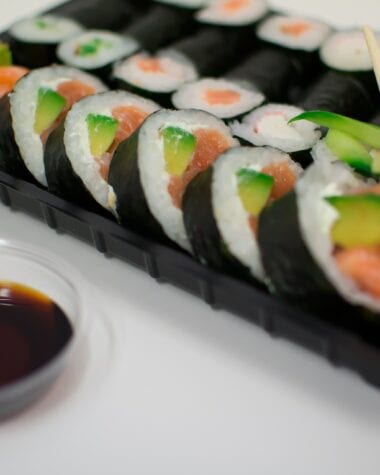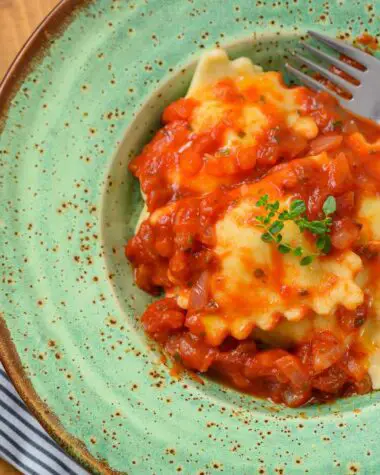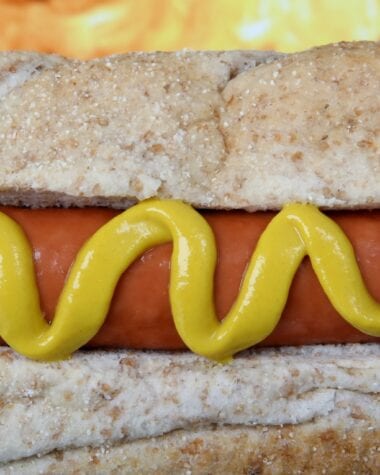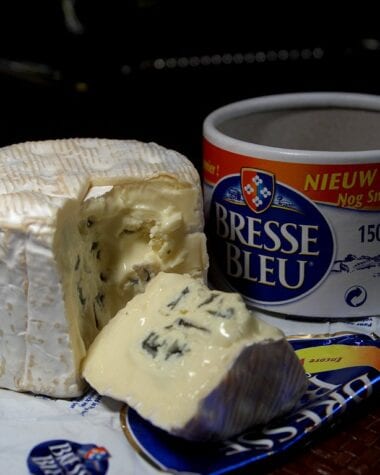The recent pandemic situation forced us to be more health-conscious. It made us aware of the fact that taking care of our bodies should be at the top of our priority – every day and every night. Nowadays, people strive to eat healthily to lead healthier lives than ever before.
And with the sudden rapid rise in demand for frozen foods, chances are you’d most likely encounter this very question: does freezing kill harmful bacteria such as Salmonella and E. Coli in the food?
Let us get into the thick of it and answer specifically that. Read on as we discuss if you can get food poisoning by eating frozen food.
What is Salmonella and E. Coli?
Before everything else, we should first be reminded exactly what Salmonella and E. Coli are. What are their negative effects on our bodies, how are they killed, and how they came to be in the first place?
Salmonella
Salmonella is a group of bacteria that thrives in the intestinal tracts of various animals, most predominantly on birds. That is why you hear most Salmonella cases from eating poultry foods. These bacteria can create a serious disease called Salmonellosis (the correct term for catching Salmonella through food consumption) when foods aren’t cooked properly.
Simply put, Salmonellosis is a disease caused by food contamination. Here are the most common ways how you can get the particular disease:
- Eating undercooked or raw meat and eggs
- Eating unpasteurized milk and dairy products
- Consuming raw fruits or vegetables that have been contaminated by animals/birds
- Leading a general poor hygiene lifestyle
Salmonella is the most active in summer when the temperature is high. The hotter the surroundings, the faster the bacteria can grow and reproduce.
It is worth noting that certain people are more likely to get a serious Salmonella infection. Sadly, these people include children younger than 5, adults 65 and older, and people whose immune systems are compromised due to certain medical conditions or their specific way of life.
Symptoms
The symptoms of contracting Salmonellosis usually start 6 hours to 6 days after getting infected. These symptoms include fever, stomach cramps, and severe to bloody diarrhea. Fortunately, most people can recover from the disease within 4 to 7 days, even without medication or antibiotic treatment. That said, some people with severe diarrhea are best taken to the hospital to receive their medical needs.
Call the doctor if you experience:
- Diarrhea combined with high fever (higher than 102 degrees Fahrenheit)
- Diarrhea for more than 3 days that is not getting better
- Your excrement has blood in it
- Inability to keep liquids down due to prolonged vomiting
- Dehydration
E. Coli
Escherichia Coli or E. Coli are bacteria found in the intestines of animals and people and can also thrive in the environment. They can be found in untreated water and food. Note that most E. Coli bacteria are harmless and are part of a healthy intestinal tract.
However, on the other side of the coin, some can cause illnesses that are sometimes severe. This includes urinary tract infections, respiratory illnesses, and even bloodstream infections.
You can get infected by bad E. Coli by eating contaminated food, drinking compromised water, or touching your mouth with your hands that are contaminated with E. Coli bacteria. The bacteria travels down your digestive tract and then releases a destructive toxin called ‘Shiga’ toxin to damage the lining of your small intestine.
Here are the most common ways how you can get the particular disease:
- Eating undercooked meat or eating meat contaminated with E. Coli
- Eating unpasteurized milk and dairy products
- Eating unpasteurized apple cider or juices
- Consuming soft cheeses made from raw milk
- Consuming raw fruits or vegetables that grew near animal farms\
- Touching your mouth with dirty hands
- Drinking contaminated water: E. Coli in the excrement from both humans and animals can end up in various water sources, these include lakes, streams, ponds, and even swimming pools and local city water supplies that haven’t been disinfected
Symptoms
People that may have contracted an E. Coli infection would mostly experience diarrhea, which can also be bloody. They may also suffer from severe stomach cramps and vomiting. While having a fever is part of the symptoms, it is uncommon. All these symptoms can run 5 days to a whole week.
About 5 to 10% of people diagnosed with a type of E. Coli called Shiga toxin-producing E. Coli O157 may suffer from hemolytic uremic syndrome, or HUS, which is a type of kidney failure that can otherwise be deadly.
It is highly recommended that you immediately call your doctor if you have diarrhea or vomiting that lasts for more than a couple of days, has bloody stools, have signs of dehydration, and have a high fever (higher than 102 degrees Fahrenheit).
Now that we are more aware of the negative effects, origins, and symptoms of both Salmonella and E. Coli, let us now relate it to freezing and answer whether or not it can survive the particular food preservation method.
Does freezing the food kill bacteria?
Sad to say, freezing does not kill the bacteria completely that may be lurking inside foods. This is because every food we consume has a small portion of water in it by nature, and bacteria, as annoying as they may be, also contain water in their cytoplasm.
When we freeze foods, the water inside them expands and may potentially burst the bacteria. However, in most cases, freezing only puts the bacteria present in the foods into a fixed position – freezing, pun intended, the bacteria in place.
It is crucial to point out that bacteria can be dormant for a longer period. Thawing the food or carelessly placing frozen food at a much higher temperature gives bacteria a chance to become active again and grow at a much faster rate. That is why it is very important to cook the food you thaw as soon as possible and why it is never recommended to refreeze thawed food.
On the flip side, low temperatures can kill certain types of bacteria. However, please don’t take it as reassurance that you can consume food without cooking. While some frozen food manufacturers claim that you can consume their products right out of the freezer after thawing, it is still best to cook them before doing so.
Speaking in comparison, freezing does to bacteria what anesthesia does to humans. When food is frozen, the bacteria that may be present in it slowly begin to sleep and eventually becomes inactive. Again, the method of freezing does not kill the bacteria in the food; it only puts it in a passive state.
How fast you freeze the food also affects how bacteria would behave. The slower the food is frozen, the more bacteria would sleep and become inactive. Meanwhile, if you flash-freeze, which is usually done by manufacturers, there is a much higher chance that some bacteria will remain active even when the food is frozen solid in the freezer.
Now, say that the food is frozen thoroughly and as properly as possible: will it stay inactive forever? No. Like we become normal after the anesthesia shot we took loses its effect in our body, the bacteria also becomes active once again once the food is put at room temperature or in a much warmer setting.
However, the difference is that bacteria tend to grow faster than before when they begin to become active again.
No matter the proper method of thawing, it will reactivate the bacteria and drive them to multiply at a higher pace. Nevertheless, cooking them at an appropriate temperature for a longer time, irrespective of whether or not it was cooked already, helps kill the bacteria for good.
Can you get food poisoning from eating frozen food?
Yes, as is with every kind of food. For one, food poisoning can occur from any food that is not properly cooked or is already compromised to begin with. Frozen meals are typically manufactured with ingredients that have been pre-cooked and then frozen.
Say that the food that was already bad made it to the freezer; no amount of time or care can make it good again. It is important to remember that frozen meals aren’t pasteurized, meaning they may sadly contain harmful bacteria.
To be safe, even though the product claims that it can be consumed right off the package, it is always recommended that you cook it properly and wash your hands before and after eating it.
Frequently Asked Questions (FAQs)
Can Salmonella and E. Coli bacteria survive freezing?
We cannot stress this enough: freezing does not kill bacteria; the food preservation method only puts them in an inactive state. The sad truth is yes, both Salmonella and E. Coli bacteria, as harmful as they can be, are able to survive freezing. They return to normal and, worse, become more active once they return to the favorable temperature for them, which is room temperature.
What temperature can kill these harmful bacteria for good?
The temperature required to kill Salmonella and E. Coli bacteria for good depends on the type of meat, the fat content, and how severely they infect the meat. However, these bacteria are killed instantly once put at temperatures above 165 degrees Fahrenheit.
How can you prevent Salmonella/E. Coli infection?
Wash your hands thoroughly with running water and soap them thoroughly for at least 10 seconds. Make it a point to always wash your hands as cleanly as possible before eating and preparing food. So, too, after touching your lovely pets, farm animals, or after using the toilet or changing your baby’s diaper.
Here are a few other tips on how you can prevent getting infected with either Salmonella or E. Coli:
- Only use clean knives and cutting boards when handling ready-to-eat foods, especially frozen foods
- Make it a habit to wash knives and cutting boards in hot water and soap between use
- Cook meat thoroughly; do not rely too much on their exterior color alone when deciding whether they are safe to eat already or not
- Do not eat meat if there is any pink portions inside
- Thoroughly wash vegetables and fruits before using them as ingredients or eating them downright
- Do not eat unpasteurized dairy products no matter how safe you think they may be
Conclusion
The bottom line is, while you can certainly suffer from food poisoning when eating frozen foods, particularly Salmonellosis and E. Coli infection, freezing is still the best way to stop them from growing and generally keep the food fresh.
However, it is best to remember that freezing stops them from reproducing but never completely removes them. They come back more dangerous when thawed. That said, cooking and maintaining proper hygiene will always be the best way to exterminate these harmful bacteria for good.
Wondering about the major pros and cons of frozen foods? We got you with that as well!










